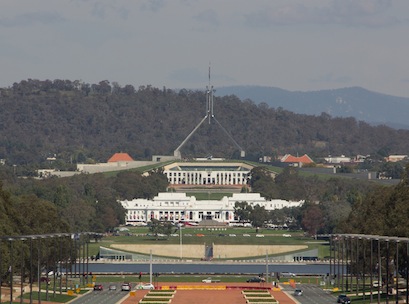This is the first article in Peter James’ Ryan’s four week series, ‘Things were supposed to get better’. There is a wonderful irony in nomenclature, where what you call something is usually the opposite of what it really delivers. Public service is a classic case in point. While we are told that a democratic system of government – encompassing all aspects of the body politic – is meant to represent the needs of constituents by continually improving the quality
of their lives now and into the future, it would appear the opposite is true.
Government does not believe it is there to serve. It believes it is there to re-shape the world the way they want it to be, or as close as they can get, with all the compromises they are forced to make along the way.
Political rhetoric has denigrated into a continual cycle of lying to get into a position of power, acting according to an international agenda and ideology, pandering to interest groups and using media spin in an attempt to convince an increasingly cynical electorate of the non-existent benefits of new laws, initiatives, and expenditures they finance through their taxes.
In this complex mix of poorly attempted subterfuge it is incredulous to see politicians and bureaucrats reactions to the mountains of research feedback increasingly screaming that citizens have lost faith in the whole damn system.
Yet, short of a revolution that forces true representation, we are all faced with a system we are helpless to change.
What is the option for retail?
While the political system cannot be changed, it can be influenced, and retailers are traditionally very poor at influencing political decisions in a manner that creates a better outcome for retail.
That situation can no longer be allowed to continue.
The influence of government on retail is not going to get better on its own. Retailers and all people who benefit from retail in the community need to think through the retail environment that optimises benefits and opportunities for a category that employs nearly 50 per cent of the working population at some time in their commercial careers, and supplies goods and services to 100 per cent of the population.
That means being clear on a retail industry agenda and learning how to work with the media to influence all stakeholders on the importance of retail to the daily lives, livelihoods, and futures of our community.
Government may not truly be there to serve, but it can be made to yield to an overwhelming united force for positive change.
It is time for retailers to rise with one powerful voice – a charismatic and seductive voice – that helps us affect positive change.
Without it, we join the ranks of the rising disenfranchised rabble and will be subject to whatever outcomes are brought about by those who do not see the unintended consequences of their actions.
Peter James Ryan is head of Red Communication. He can be contacted on (02) 9481 7215 or at www.redcommunication.com.
© Copyright 2014. Red Communication Australia.

